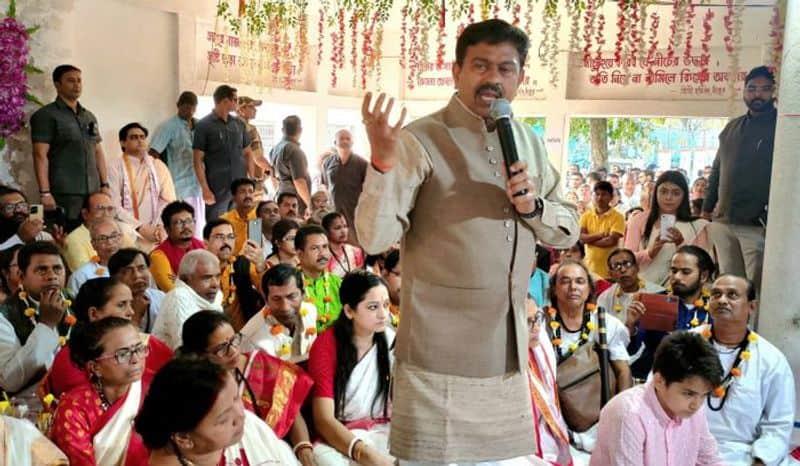
Citizenship Amendment Act Draft By March 2024: Mos MHA
Speaking in North 24 Parganas district, Mishra emphasized that the CAA, enacted by Parliament in December 2019, ensures that members of the Matua community have attained citizenship, alleviating fears of adverse action in the absence of proper documentation.
Mishra disclosed that the Parliamentary Committee on Subordinate Legislation in the Lok Sabha and the Rajya Sabha had set deadlines of January 9, 2024, and March 30, 2024, respectively, for finalizing the CAA rules. The timing of Mishra's statement is notable in the lead-up to the Lok Sabha elections, as delays in rule formulation have caused discontent among some Matua members, including BJP-affiliated MLAs.
The Matuas, a community mainly comprising Hindu Namasudras who migrated from Bangladesh (formerly East Pakistan), hold significance in South Bengal during elections. The issue of CAA rules is pivotal to securing their support. Minister Santanu Thakur, a Bongaon BJP MP and Matua sect descendant, echoed Mishra's assurances at the event, reiterating the government's commitment to granting citizenship.
The Trinamool Congress, led by Chief Minister Mamata Banerjee, has countered the CAA, asserting that everyone residing in the state is already a citizen. The CAA remains a contentious issue in the region, with political implications for the upcoming elections. Mishra concluded by expressing hope for timely rule formulation and addressing any issues that may arise, reinforcing the government's commitment to fulfilling its promise of providing citizenship to eligible individuals under the CAA.
What is the Citizenship (Amendment) Act?
The Citizenship (Amendment) Act aims to expedite the process of granting citizenship to persecuted minority groups from Pakistan, Bangladesh, and Afghanistan. Specifically, the bill targets six minority communities: Hindus, Jains, Sikhs, Buddhists, Christians, and Parsis. The primary objective is to modify the definition of illegal migrants. Notably, the legislation does not include provisions for Muslim sects such as Shias and Ahmadis, who also face persecution in Pakistan.
Under the CAA, the identified beneficiaries can establish residence in any state within the country, and the responsibility for accommodating persecuted migrants will be collectively borne by the entire nation.
Prior to the CAA, the Constitution of India outlined citizenship acquisition through naturalization, applicable to individuals who have resided in India for the past 12 months and for at least 11 of the preceding 14 years. It also extended citizenship eligibility to individuals whose parents or grandparents were born in India.
Countdown to Ayodhya Ram Temple's inauguration: Intricate floor-inlay work unveiled
Legal Disclaimer:
MENAFN provides the
information “as is” without warranty of any kind. We do not accept
any responsibility or liability for the accuracy, content, images,
videos, licenses, completeness, legality, or reliability of the information
contained in this article. If you have any complaints or copyright
issues related to this article, kindly contact the provider above.

















Comments
No comment